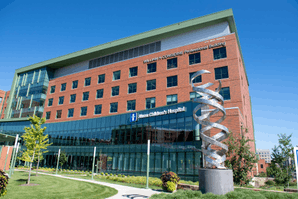NeuroDevelopmental Science Center

We are ranked among the best children's hospitals in the country for pediatric neurology and neurosurgery, according to U.S. News & World Report. At our NeuroDevelopmental Science Center (NDSC), we bring together 5 pediatric specialties under one roof to deliver the best outcomes and quality of life for children and families affected by neurological and developmental disorders.
Learn more...Department: 330-543-2778
Our Services:
About NeuroDevelopmental Science Center
We are dedicated to easing the circumstances each step of the way, from referral to diagnosis to treatment. Our goal is to provide care that enriches you and your child's quality of life.
Our center includes pediatric experts in developmental and behavioral pediatrics, neurobehavioral psychology, neurology, neurosurgery and physical medicine and rehabilitation.
Our team approach ensures your child receives all the services they need for complex medical conditions, ranging from autism spectrum and neuromuscular disorders to epilepsy and mitochondrial diseases. We tailor our services to your child's individual needs so they can achieve the best possible outcomes.
NeuroDevelopmental Science Center
Akron Children's NeuroDevelopmental Science Center, AkronConsidine Professional Building
215 West Bowery Street
Level 4
Akron, Ohio 44308
Fax: 330-543-8054
Map & directions
More about this location...
Hours
Appointments: 330-543-2778
Department: 330-543-8050
Open Clinical Studies
Safety and efficacy of Rimegepant for the treatment of migraine in pediatric patients ≥6 to <18 years of age
View complete study information here.
More about this studyStudy of CAP-1002 in Ambulatory and Non-Ambulatory Patients With Duchenne Muscular Dystrophy
For complete information, please visit the study on Clinicaltrials.gov
More about this study

























